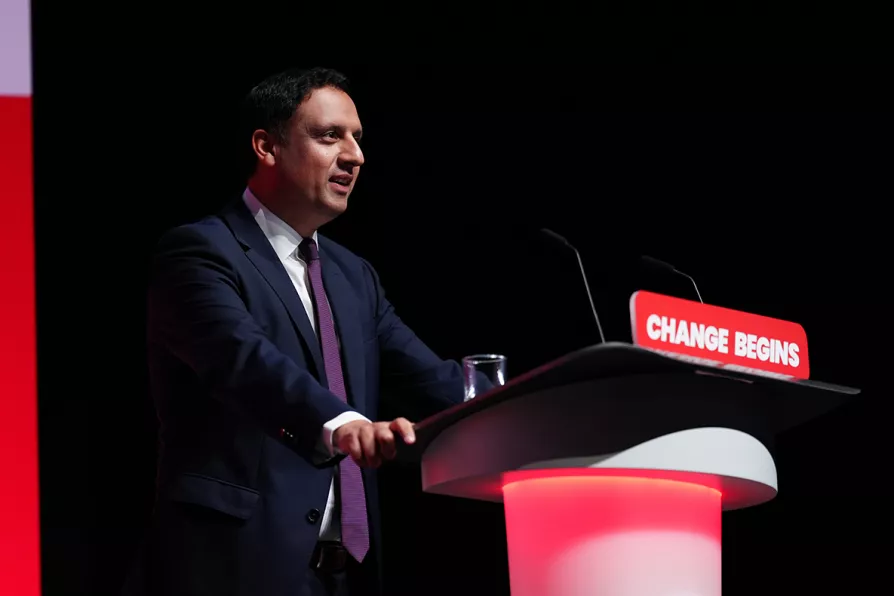Hundreds protested against the US-Israel attacks on Iran in Parliament Square on Saturday, fearing a wider conflagration and horrified by the targeting of young schoolchildren, writes LINDA PENTZ GUNTER

 Scottish Labour leader Anas Sarwar speaks during the Labour Party Conference at the Liverpool Arena, September 23, 2024
Scottish Labour leader Anas Sarwar speaks during the Labour Party Conference at the Liverpool Arena, September 23, 2024
THE Scottish independence referendum results were announced in the early hours of Friday September 19 2014. Labour Party conference in Manchester that year started on Sunday September 21.
To have a Red Paper Collective magazine available for the Monday it was necessary to have two versions of the cover and editorial ready to go to a printer in Manchester immediately the results were announced.
One cover version had Britain held together by a safety pin, the other had the safety pin open and Scotland slipping out. In the days before the referendum it had been impossible to predict which cover we would be using. What was clear was that it would require more than a safety pin to secure the allegiance of a large number of Scots to remain within the UK.

On the release of her memoir that reveals everything except politics, Sturgeon’s endless media coverage has focused on her panic attacks, sexuality and personal tragedies while ignoring her government’s many failures, writes PAULINE BRYAN

Having endured 14 years of Tory austerity followed by Starmerite cuts, young voters are desperate for change — but Anas Sarwar’s refusal to differentiate from Westminster means Scottish Labour risks electoral catastrophe, writes LAUREN HARPER

DIANE ABBOTT looks at the whys and hows of Labour’s spectacular own goal











